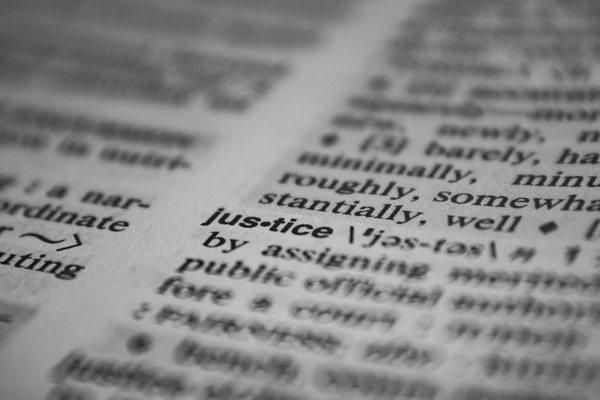- Attorney-Lawyer.esq
- Blog
- Understanding Your Legal Rights: A Comprehensive Guide
Understanding Your Legal Rights: A Comprehensive Guide

Understanding your legal rights is crucial in today's complex and fast-paced world. From knowing your rights in the workplace to understanding your rights as a consumer, having a comprehensive guide can empower you to navigate various situations with confidence. In this article, we will delve into the importance of knowing your legal rights, the different types of rights you should be aware of, and how they protect you in different scenarios. We will also address common misconceptions, provide steps to take to protect your rights, and highlight resources for further learning. Let's embark on a journey to empower ourselves through knowledge of our legal rights.
1. Knowing Your Legal Rights: An Introductory Overview
Knowing your legal rights means understanding the laws that govern your interactions with others and protect you in different situations. These rights are based on federal and state laws, as well as common law principles. They cover a wide range of areas, including civil rights, consumer rights, employment rights, and more. By knowing your legal rights, you can assert yourself in various situations and ensure that your rights are respected.
2. The Importance of Understanding Legal Rights
Understanding your legal rights is essential for protecting yourself from injustices and ensuring fair treatment. Legal rights provide a framework for resolving disputes, seeking justice, and maintaining order in society. They serve as a shield against abuse of power and discrimination, and empower individuals to stand up for themselves and others. By knowing your legal rights, you can advocate for yourself and make informed decisions in different circumstances.
3. Types of Legal Rights You Should Be Aware Of
There are several types of legal rights that you should be aware of, including civil rights, constitutional rights, property rights, and human rights. Civil rights protect individuals from discrimination based on characteristics such as race, gender, religion, and disability. Constitutional rights guarantee fundamental freedoms, such as freedom of speech, religion, and assembly. Property rights protect your ownership of physical and intellectual property. Human rights encompass basic rights to life, liberty, and equality.
4. How Legal Rights Protect You in Various Situations
Legal rights protect you in various situations by setting boundaries for acceptable behavior and providing mechanisms for enforcement. For example, employment rights ensure that you are treated fairly in the workplace and have access to benefits such as minimum wage and safe working conditions. Consumer rights protect you from fraud and ensure that you receive accurate information about products and services. By asserting your legal rights, you can hold others accountable for their actions and seek redress for any harm or injustice.
5. Common Misconceptions About Legal Rights
One common misconception about legal rights is that they are static and unchanging. In reality, legal rights evolve over time through legislation, court decisions, and societal norms. Another misconception is that legal rights are universal and apply to everyone equally. While some rights are universal, others are specific to certain groups or contexts. It is important to stay informed about changes in the law and seek legal advice when in doubt about your rights.
6. Steps to Take to Protect Your Legal Rights
To protect your legal rights, you can take several proactive steps, such as educating yourself about the law, keeping records of important documents and communications, seeking legal advice when needed, and advocating for yourself in different situations. It is also important to be aware of deadlines for filing claims or seeking redress for violations of your rights. By taking these steps, you can assert yourself confidently and safeguard your rights effectively.
7. Resources for Learning More About Your Legal Rights
There are many resources available for learning more about your legal rights, such as legal aid organizations, government agencies, law libraries, and online legal information websites. These resources provide valuable information on different areas of law, your rights and responsibilities, and how to seek legal assistance when needed. By accessing these resources, you can stay informed about changes in the law, understand your rights better, and take action to protect them.
8. Seeking Legal Assistance When Your Rights are Violated
If your legal rights are violated, it is important to seek legal assistance promptly to address the issue and seek redress. You can contact a lawyer, legal aid organization, or advocacy group for help in asserting your rights and resolving disputes. Legal assistance can help you navigate complex legal processes, gather evidence to support your claim, and advocate for your interests effectively. By seeking legal assistance, you can ensure that your rights are protected and enforced.
9. The Role of Advocacy Groups in Defending Legal Rights
Advocacy groups play a crucial role in defending legal rights by raising awareness about issues, lobbying for changes in the law, and providing support to individuals whose rights are violated. These groups advocate for policy reforms, conduct research on legal issues, and offer legal representation to marginalized communities. By supporting advocacy groups, you can contribute to the protection of legal rights and promote social justice in your community and beyond.
10. Empowering Yourself Through Knowledge of Your Legal Rights
Empowering yourself through knowledge of your legal rights is a lifelong journey that requires continuous learning, self-advocacy, and engagement with legal issues. By staying informed about changes in the law, understanding your rights and responsibilities, and seeking legal assistance when needed, you can protect yourself from injustices and assert your rights effectively. Remember that knowledge is power, and by empowering yourself with knowledge of your legal rights, you can navigate life's challenges with confidence and resilience.
===
In conclusion, understanding your legal rights is an essential part of being an informed and empowered citizen. By knowing your rights, you can protect yourself from harm, advocate for justice, and contribute to a more just and equitable society. With the comprehensive guide provided in this article, you can take proactive steps to safeguard your rights, seek legal assistance when needed, and support advocacy efforts to defend legal rights for all. Empower yourself through knowledge of your legal rights and make a difference in the world around you.




